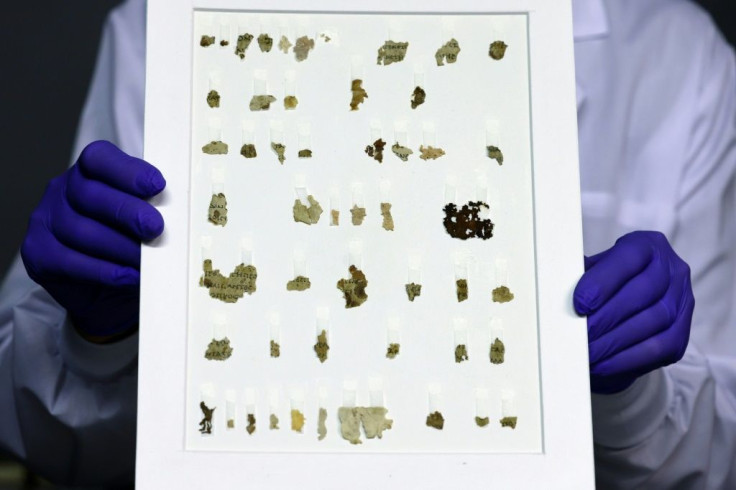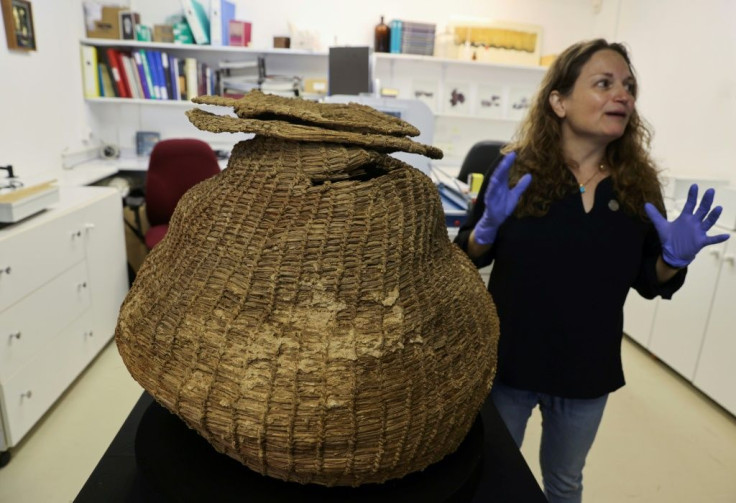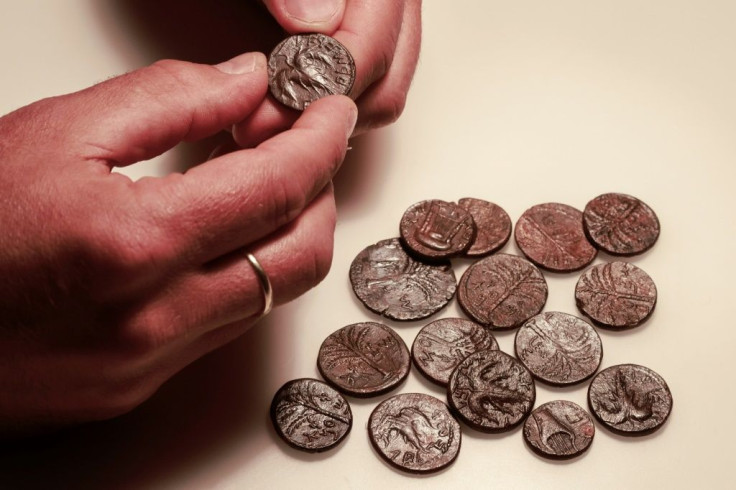Israel Unearths Fragments Of 2000-year-old Biblical Scroll
Israel on Tuesday unveiled fragments of a biblical scroll dating back some 2,000 years, in what experts described as the most significant such find since the Dead Sea Scrolls.
The artifacts were unearthed during excavations by the Israel Antiquities Authority (IAA) in the Judean desert, which spans parts of southern Israel and the occupied West Bank.
In a site known as the "Cave of Horrors," archaeologists found fragments of a scroll with a Greek translation of the Hebrew bible, the first such find since the early 1960s.
"For the first time in approximately 60 years, archaeological excavations have uncovered fragments of a biblical scroll," the IAA said.

Oren Ableman, an IAA curator, told AFP parts of the same scroll from the Book of the Twelve Minor Prophets were first discovered in the Cave of Horrors by Bedouins in the 1950s.
The Cave of Horrors took its name from the numerous skeletons found inside it and the treacherous terrain nearby.
Most of the text is in ancient Greek, a widely used language at the time, but the word Lord appears in ancient Hebrew script.
Oren said that among the most striking features of the new fragments is a deviation with all other known versions of the Old Testament: in one passage, the word "gates" is replaced by the word "streets."

The significance of that deviation is "what we are trying to discover now," he said.
Yosef Garfinkel, head of the Institute of Archaeology at Jerusalem's Hebrew University, described the find as "exciting," telling AFP it could enrich the "study of the history of the Greek translation of the bible."
The items were discovered in a cave believed to have been used by Jews rebelling against the Romans during the failed second-century Bar Kochba revolt.
The IAA compared the find to the extraordinary discovery of the Dead Sea Scrolls, some 900 manuscripts found between 1947 and 1956 in the Qumran caves above the Dead Sea in the West Bank.
They are some of the earliest biblical texts ever found.

The Judea desert excavation also unearthed a cache of rare coins, a six-millennia-old skeleton of a child and a basket described by the IAA as "likely the oldest in the world", which been carbon-dated to 10,500 years old.
"I shook for days," after the basket was found, IAA archaeologist Chaim Cohen told AFP.
The woven basket was found remarkably intact, with a rock resting on its top -- an indication that its users wanted to keep the contents safe and intended to come back for them, Cohen said.
Organic material like the wood used for the basket typically decays, but this unprecedented discovery was preserved by the Judean's desert's dry climate and protective conditions in the cave, he said.
Cohen added that very little is known about the society that lived in the area at the time.
"From this ancient period, we have nothing: We can tell, and I want to be very cautious, that they are likely nomads or half-nomads," he said.
Archaeological evidence suggests that looters had searched within seven centimetres of the basket, but never discovered it, Cohen said.
Israel's archaeological activities in occupied Palestinian territory have sparked controversy in the past.
Israel has been accused of politicising the discovery of ancient Jewish artifacts to justify territorial claims in the West Bank.
The IAA said it partnered in the dig with the Israel military branch responsible for civil affairs in the Palestinian territories (COGAT).
Palestinian antiquities authorities have not responded to requests for comment on the finds.
© Copyright AFP 2024. All rights reserved.





















